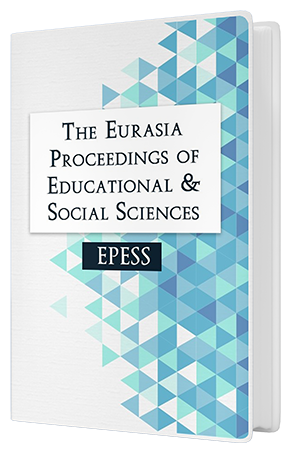FACTORS OF INFLUENCE INTO THE STUDENTS DECISION ON CHOOSING THE DIRECTION OF STUDIES IN THE REPUBLIC OF KOSOVA
Keywords:
Education, selection, studies, department, studentAbstract
Every year, students who complete the high education, and who intend continuing their post-secondary education, are faced with the problem of selecting the direction of studies. The selection process of conducting studies usually starts years ago, and many factors are involved in this process. Identification and analysis of factors that influence the selection process of direction of studies by students was the purpose of this research. To identify the factors that have greater weight in determining the direction of studies by students, 1345 high school students in Kosova were surveyed using a questionnaire prepared for this purpose. These data provided descriptive information, quantitative and statistical interpretation. The statistical analysis of the data is made by using the SPSS software. Findings from this study indicate that a significant number of factors are taken into account by students during this process. Economic factors proved dominant during data analysis. Also a qualified majority of respondents would choose a public institution to further their education. Students in determining the direction of studies are mainly based on their inclinations and less on academic skills they have shown during their High school. A big impact in this process have parents, however the final decision is made by the students. About a third of respondents had difficulty or distraction in determining the direction of studies. About the fifth of them are not sure concerning their decision. At the end of this research we describe the implementation of an application which helps the interested sides; such are the students, parents and mentors in this process of decision making.Downloads
Published
Issue
Section
License
Copyright (c) 2016 The Eurasia Proceedings of Educational and Social Sciences

This work is licensed under a Creative Commons Attribution-NonCommercial-ShareAlike 4.0 International License.
The articles may be used for research, teaching, and private study purposes. Any substantial or systematic reproduction, redistribution, reselling, loan, sub-licensing, systematic supply, or distribution in any form to anyone is expressly forbidden. Authors alone are responsible for the contents of their articles. The journal owns the copyright of the articles. The publisher shall not be liable for any loss, actions, claims, proceedings, demand, or costs or damages whatsoever or howsoever caused arising directly or indirectly in connection with or arising out of the use of the research material. All authors are requested to disclose any actual or potential conflict of interest including any financial, personal or other relationships with other people or organizations regarding the submitted work.




